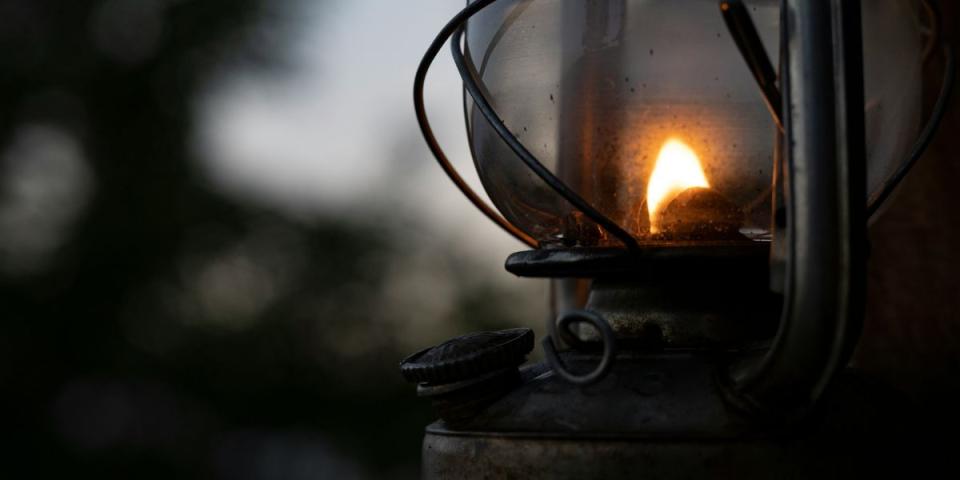When I moved to Toronto at age 20 to pursue acting, I felt something strange, an invisible pressure to be busy—productive all the time—even before I had real connections here. It wasn’t just ambition. It was like an ambient guilt for not “doing.”
It couldn’t have contrasted more with my slower upbringing in Saskatoon. Now, years later, walking with people through ministry, I see that same pressure showing up everywhere. Kids worrying about things far beyond their reach. Teenagers overbooked but unsure how to rest. Adults tangled in endless responsibilities, not knowing what truly matters.
And our ways of resting—watching TV, scrolling, vacationing, eating well, gathering socially—don’t go deep enough. They don’t touch the soul. What does? What can calm this pressure, even this need to be productive?
For me, it's been one consistent truth: live slowly, and practice discernment grounded in Jesus’ character and the presence of the Holy Spirit. It sounds big. But it’s not complicated.
Start by doing less. Make room. Pray through your choices. Feel the Spirit’s presence in what you’re doing. Wait. Watch. Trust that God unfolds things in His time. It’s scary giving up this degree of control—but it is also freeing.
Slow living really means leaving room for Jesus. My wife and I learned this the hard way with our two young kids. Overbooking was crushing, stressful and exhausting. But slowness—space—that’s where we grew and felt more joy.
You’re not more because you’ve done more. Your calendar doesn’t define you. What if instead you let Jesus inhabit every moment? Let Him in. Let Him change you and leave Him the space to do it.
And in that space, God acts. He leads you into things you would never plan for. While many Christians live with a destination mindset—looking toward heaven—our faith is ultimately about the journey. Eternal life begins now and moves us closer to the great eternal community of love found in the Father, Son, and Holy Spirit.
Look at Jesus—He didn’t rush. He waited before beginning His ministry. He slipped away to pray when people were clamoring for Him. He spent slow time with a few. He wrote in the sand before answering accusations². He asked questions before giving answers³⁴. He saw beneath someone’s words to their real need⁵.
If anyone could justify hurrying, it was Jesus. With His death imminently before him, He knew he had a finite amount of time to do what was needed. Yet He made space. Time was sacred to Him. It should be to us, too.
I try to give every moment to Jesus. And let me tell you: conversations are the hardest. Phones are a constant distraction, but speaking—really speaking to people—that’s where surrender gets tricky.
Here’s one story: I was blessing a house. A parishioner lived there with a roommate who describes himself as an atheist. We chatted. There was a lull—I thought, its time to do the blessing. But I paused to pray. Quietly. Mid-chat. It felt strange. But right.
And it led somewhere surprising. I asked the roommate about his interests. Based on his response, a whole different path opened. Unplanned. And gently, Jesus stepped into that conversation and for a fun and hopefully Spirit- filled moment, we experienced how the gospel of Jesus Christ spoke through Star Wars.
This stopping to discern is something Jesus did all the time in His own ministry. He paused. Prayed. Responded with divine insight.
When others were ready to throw stones at a woman accused of adultery, He knelt and wrote in the sand² — a moment of silence that reshaped everything. When pressed about paying taxes³ or His authority⁴, He answered not with speed, but with discernment. With the woman at the well⁵, He saw her thirst long before she asked for living water.
Jesus understood time in a way we often don’t. Not as something to conquer, but as something sacred. Even with only three years of active ministry, He never rushed. He taught us that discernment doesn’t demand efficiency—it demands presence.
You may feel the weight of expectations, the pressure to keep moving. But the gospel isn’t a call to frantic speed. It’s a call to faith, to trust that eternal life starts now. That every moment is pregnant with God’s possibility.
So instead of quenching the Holy Spirit with hurry, offer Him time. Offer Him quiet. Offer Him your mind and your schedule. And then — just watch.
God can do more than we ask, think, or imagine. I’ve seen it. I’m still seeing it.
Footnotes:
- Jesus going off to pray: Luke 5:16, Luke 6:12, Matthew 14:23
- Jesus writing in the sand: John 8:1–11
- Jesus questioned about paying taxes: Matthew 22:15–22
- Jesus questioned about His authority: Mark 11:27–33; Luke 20:1–8
- Jesus and the woman at the well: John 4:1–42
Written by Rev. Philip Stonhouse, Head Priest at St Matthew’s Islington (MDIV, W16)
(With special thanks to my wife Mary Anne Perta for her edits and writing insight.)





